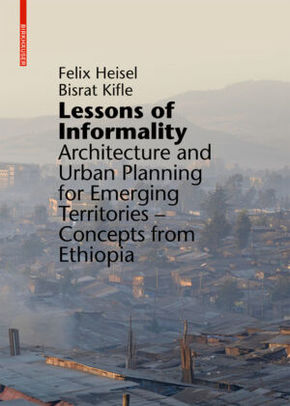Lessons of Informality - Architecture and Urban Planning for Emerging Territories - Concepts from Ethiopia
| Verlag | Birkhäuser Berlin |
| Auflage | 2016 |
| Seiten | 224 |
| Format | 17,8 x 24,6 x 2,2 cm |
| Gewicht | 826 g |
| Artikeltyp | Englisches Buch |
| ISBN-10 | 3035606692 |
| EAN | 9783035606690 |
| Bestell-Nr | 03560669A |
Provisorisch gebaute Behausungen wie etwa Wellblechhütten sind in den Metropolen Afrikas, Asiens und Lateinamerikas allgegenwärtig. Oft kritisiert für die unhygienischen Lebensumstände, gelten diese ungeplant entstandenen Siedlungengleichwohl als vielschichtiges Element auf dem Weg zu einer resilienten Stadt.
Solch urbane "Informalität" ist typisch für Schwellenländer, in denen heute ca. 68 % der Weltbevölkerung leben. Sie wird hier exemplarisch an Äthiopien und insbesondere Addis Abeba analysiert. Neben Ansätzen für den Wohnungsbau stellt das Buch auch ökonomische Strukturen vor: Mikrokreditwesen, "bottom-up"-Versicherungssysteme oder Berufe wie der "Kuré-Yalew" (Müllsammler), der im Sinne des "Urban Mining" einen wertvollen Beitrag zur Wiederverwendung von Abfallstoffen leistet.
Informal settlements made up of corrugated iron shacks and other materials are a ubiquitous feature in the megacities of Africa, Asia and Latin America. In response to the enormous influx of migrants from the countryside, the informal city experienced a phenomenal growth. While rightly criticized for their lack of hygiene and for their low-level living conditions, these shelters nevertheless provide planning strategies and possibly even a roadmap to a resilient city in an emerging territory.
The unregistered economic activities associated with them proliferate in a similar way and basic urban services are increasingly provided informally. Examples of these economic phenomena are microloans, bottom-up insurance or professions such as the "Kuré-Yalew" (refuse collector), who acts as an "urban miner" and thus contributes a valuable service to the community by recycling materials.

